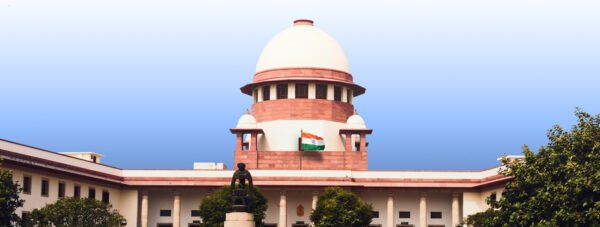Supreme Court to hear pleas against constitutional validity of Waqf (Amendment) Act today

The Supreme Court of India is scheduled to hear a batch of petitions challenging the constitutional validity of the Waqf (Amendment) Act, 2025, on May 15, 2025. The matter will be heard by a bench comprising Chief Justice B R Gavai and Justice Augustine George Masih.
The Waqf (Amendment) Act, 2025, recently passed by Parliament and signed by the President, has been the subject of intense debate and legal scrutiny.
Multiple petitions have been filed by political leaders, religious organizations, and individuals, raising concerns about the law’s impact on property rights, religious freedoms, and the management of waqf properties.
The main constitutional questions before the court include:
Whether the Act infringes on the right of religious denominations to manage their own affairs as protected by Article 26 of the Constitution.
The exclusion of the concept of “waqf-by-user” from the definition of waqf, which previously allowed land used for Muslim religious or charitable purposes over a long period to be deemed as waqf, even if not formally registered.
The inclusion of non-Muslim members in the Central Waqf Council and State Waqf Boards, and whether this violates religious autonomy under Articles 26(b) and 26(d).
Allegations that certain provisions allow Waqf Boards to unlawfully claim lands belonging to public utilities, government agencies, and other religious trusts.
The Supreme Court has previously expressed concern over the potential consequences of de-notifying waqf-by-user properties and the inclusion of non-Muslims on waqf boards.
The Centre has defended the law, arguing that it was passed after due deliberation and should not be stayed without a full hearing.
The court has treated five writ petitions as lead cases, with others as intervention applications, and has directed the Centre, state governments, and Waqf Boards to file preliminary replies.
The matter was transferred to the new bench led by CJI Gavai after the retirement of former CJI Sanjiv Khanna.
The outcome of the hearing could have significant implications for the management of waqf properties, the powers of the Centre versus states, and the rights of religious communities in India. The Supreme Court’s decision will determine the future implementation of the Waqf (Amendment) Act, 2025, and address the constitutional concerns raised by the petitioners.
Summary Table: Key Challenges to the Waqf (Amendment) Act, 2025
| Issue Challenged | Petitioners’ Concern | Constitutional Article Involved |
|---|---|---|
| Removal of “waqf-by-user” concept | May impact status of many waqf properties | Article 26 (Freedom of religion) |
| Inclusion of non-Muslims in Waqf Boards | Alleged violation of religious autonomy | Article 26(b), 26(d) |
| Centralization of powers | Alleged erosion of state and community control | Federal principles |
| Alleged misuse for property accumulation | Claims of unlawful land acquisition by Waqf Boards | Property rights, religious freedoms |

